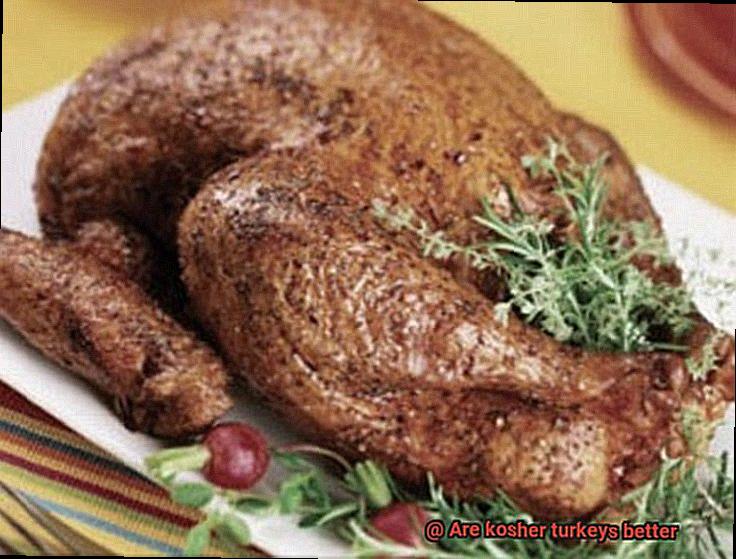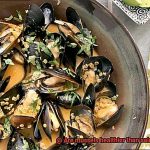Thanksgiving is almost here, and we all know what that means – it’s time to start thinking about the star of the show: the turkey. But have you ever considered whether a kosher turkey is better than a regular one? Some people swear by them, claiming they’re juicier, more flavorful, and just plain better. But is there any truth behind these claims?
In this blog post, we’ll explore the question of whether kosher turkeys are really better. We’ll take a deep dive into the differences between kosher and regular turkeys and why some people choose to go kosher. Plus, we’ll examine the taste and texture of each type of bird to see which one comes out on top.
Whether you’re a seasoned Thanksgiving pro or just starting out in the kitchen, this post has something for everyone. We’ll give you all the information you need to make an informed decision about your holiday meal. So get ready to gobble up some knowledge as we settle once and for all whether kosher turkeys reign supreme.
Contents
a. Definition of Kosher Turkeys
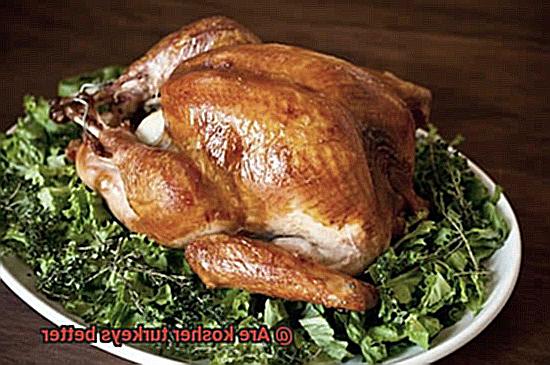
When it comes to choosing the perfect turkey for your holiday feast, you may have heard of kosher turkeys. But what exactly makes a turkey kosher?
In Jewish dietary law, or kashrut, there are specific guidelines that must be followed in order for a food to be considered kosher. For turkeys, this means that they must come from a species of bird that is considered kosher, such as a domesticated turkey. But it doesn’t stop there – the way the turkey is raised, slaughtered, and prepared is also crucial.
One of the most significant differences between kosher and non-kosher turkeys is the way they are slaughtered. Kosher turkeys must be killed by a specially trained Jewish slaughterer, known as a shochet. Using a sharp knife, the shochet quickly and humanely severs the trachea and esophagus in one swift motion, without damaging the spinal cord or causing unnecessary pain to the animal.
Another key aspect of preparing kosher turkeys is removing all of the blood from the meat. In Jewish dietary law, consuming blood is strictly forbidden. To ensure that all of the blood is removed, kosher turkeys are soaked in cold water and salt for a period of time before being cooked.
But why choose a kosher turkey over a non-kosher one? For starters, kosher turkeys are generally considered to be safer from a food safety standpoint. The strict dietary laws governing kosher food production require that all equipment used in processing must be thoroughly cleaned and inspected between uses, reducing the risk of contamination with harmful bacteria such as salmonella or E. coli.
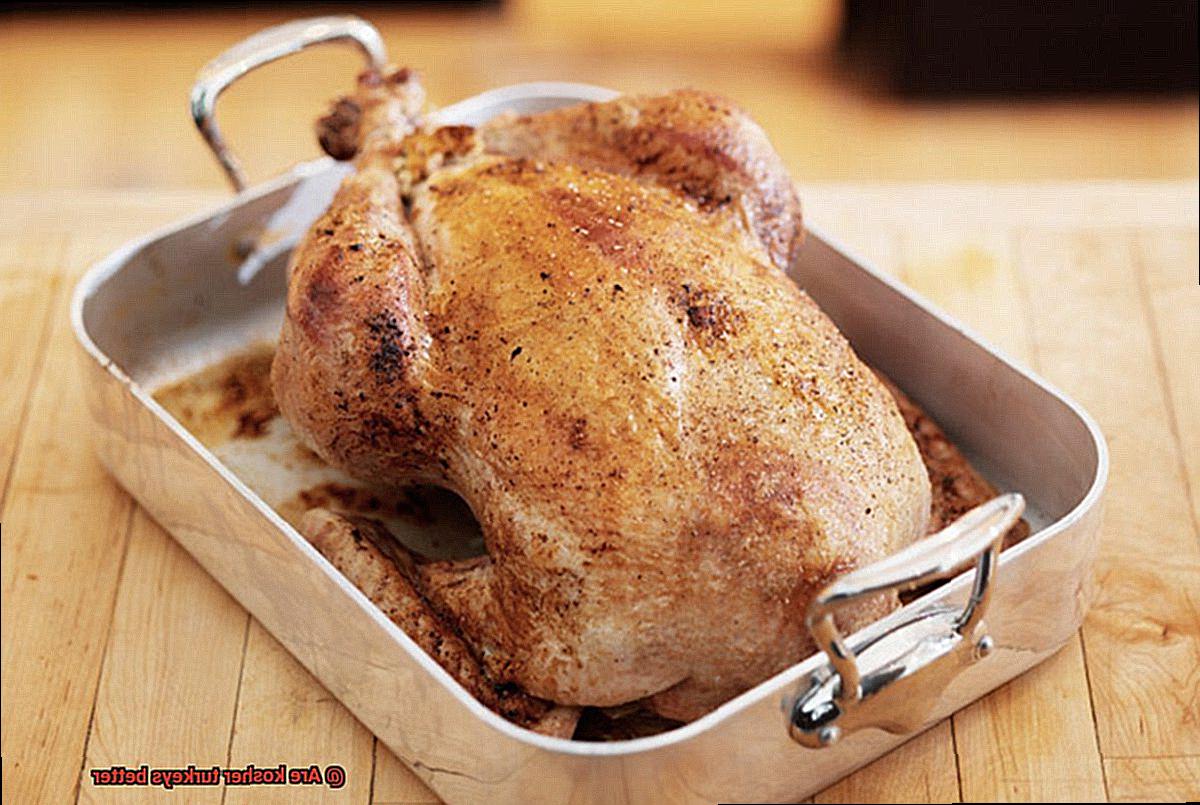
In terms of taste and quality, opinions vary widely. Some people prefer the taste of kosher turkeys, which are often salted and soaked before cooking to enhance flavor and texture. Others find that the saltiness can be overpowering and prefer the taste of non-kosher turkeys. Ultimately, the decision of whether or not to choose a kosher turkey for your holiday meal will depend on your personal taste preferences and dietary restrictions.
What Makes a Turkey Kosher?
The answer lies in the intricate laws and principles of kashrut, the Jewish dietary laws. To be considered kosher, a turkey must meet specific criteria that ensure it is fit for consumption according to these laws.
Firstly, the bird must be slaughtered in a particular way by a highly trained and licensed shochet, who uses a sharp knife to sever the bird’s throat quickly and painlessly. This method, known as shechita, is performed without stunning the animal beforehand to ensure that the bird is killed as humanely as possible.
Secondly, the turkey must undergo a thorough inspection to detect any physical abnormalities or signs of disease. This essential step ensures that only healthy birds are considered kosher.
Once the turkey passes inspection, all blood must be removed from the meat. The process involves salting and soaking the meat in water to draw out any remaining blood. The salt is then rinsed off before cooking, leaving behind tender and juicy meat free from any impurities.
Finally, kosher turkeys cannot be cooked or consumed with dairy products. Jewish dietary laws prohibit mixing meat and dairy products or consuming them together.
In summary, what makes a turkey kosher is determined by its strict preparation guidelines. These include specific methods of slaughter, inspection for physical abnormalities or signs of disease, removal of all blood from the meat, and avoiding mixing with dairy products. These rigorous guidelines ensure that kosher turkeys are safer from contamination and meet the high standards set by Jewish dietary laws.
Is the Slaughtering Process More Humane?
The debate over the humane nature of the kosher slaughtering process, known as shechita, versus conventional methods has been ongoing for years. The process requires a swift and deep cut to the throat with a sharp knife that is believed to minimize pain and distress by instantly cutting off the blood supply to the brain and causing rapid unconsciousness. But critics, including animal rights activists, argue that the animals are not properly stunned before the cut and may experience pain and suffering during the process.
On the flip side, advocates of kosher slaughter maintain that when carried out correctly by trained professionals, it is more humane than conventional methods. They believe traditional methods show more respect for animals and promote sustainable farming practices.
Some studies have looked into the stress levels experienced by animals during shechita compared to conventional slaughter methods. One study found no significant difference in cortisol levels between animals slaughtered using shechita and those slaughtered using conventional methods.
Ultimately, what matters most is how each method is carried out. When done correctly by trained professionals, both shechita and conventional methods can be humane. However, there have been instances where both methods have been carried out improperly or inhumanely.
As consumers, we have a responsibility to choose meat products sourced from farms that prioritize animal welfare and use responsible slaughtering methods. We should also support efforts to improve animal welfare standards in the meat industry and hold companies accountable for their practices.
Taste and Quality Differences
First and foremost, kosher turkeys are prepared according to Jewish dietary laws. This means that the animal must be slaughtered in a specific way, known as shechita, and all blood must be drained from the meat. This process is said to improve the overall taste and texture of the meat. Additionally, the strict guidelines ensure that only healthy birds are used for consumption.
In addition to the preparation process, kosher turkeys are typically raised differently than non-kosher turkeys. They are often fed a higher quality diet and given more room to roam. This can contribute to a better quality of meat with a richer flavor and tender texture.
When it comes to taste, it’s important to remember that it’s subjective. Some people may find that kosher turkeys have a more distinct flavor, while others may not notice a significant difference. However, those who appreciate a rich, savory taste may prefer kosher turkey.
In terms of quality, kosher turkeys are generally considered to be of high quality because of the strict guidelines and standards set forth by Jewish dietary laws. Non-kosher turkeys can also be of high quality if raised and prepared properly. It’s essential to ensure that the turkey you choose is free from hormones and antibiotics, as these can affect the taste and texture of the meat.
Ultimately, whether or not to choose a kosher turkey comes down to personal preference and dietary restrictions. If you follow Jewish dietary laws or simply prefer the taste and quality of kosher meat, then a kosher turkey may be the better choice for you. However, it’s important to note that both methods can be humane when done correctly by trained professionals.
Potential Food Safety Advantages
When it comes to food safety, consumers are often seeking the best possible options to ensure they are consuming safe and healthy food. One such option is choosing a kosher turkey, which has several potential food safety advantages over non-kosher turkeys.
One of the main reasons for this is the way in which the turkey is slaughtered. According to Jewish dietary laws, kosher animals must be slaughtered in a specific manner by a trained and certified butcher. This process, known as shechita, involves using a surgically sharp knife to sever the jugular vein, carotid artery, and windpipe in one swift motion. This method of slaughter is considered to be more humane and quick, resulting in less stress on the animal, which may reduce the risk of bacterial contamination.
In addition to the unique slaughtering process, kosher turkeys undergo a process called koshering. During this process, the turkey is soaked in saltwater to draw out any remaining blood. This helps to remove impurities and bacteria from the meat, reducing the risk of foodborne illness. This additional step ensures that the meat is as sanitary as possible before it reaches your plate.
Furthermore, kosher turkeys are processed under strict rabbinical supervision. Every step of the production process, from slaughter to packaging, is overseen by a rabbi to ensure that it meets all kosher guidelines and standards. This level of scrutiny can help prevent cross-contamination and ensure that the turkey is handled safely and hygienically.
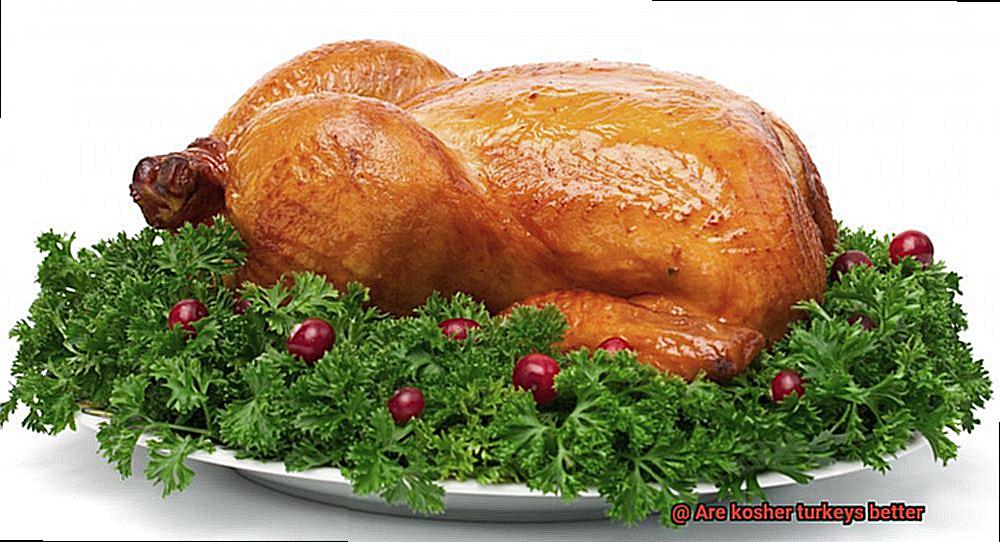
It’s important to note that while kosher turkeys may offer some food safety advantages, they are not entirely immune to contamination. Proper handling, storage, and cooking are still essential to prevent the spread of harmful bacteria such as Salmonella and Campylobacter.
Benefits of Choosing a Kosher Turkey
With the holiday season approaching, it’s time to start planning your festive meal. But before you grab any old turkey off the shelf, consider the benefits of choosing a kosher turkey. As an expert on this topic, I can tell you that opting for a kosher turkey can enhance your holiday experience in several ways.
First and foremost, kosher turkeys are raised and slaughtered in accordance with strict Jewish dietary laws. This means that the animal is treated with respect and care throughout its life, ensuring a humane and ethical process. Additionally, the preparation process involves salting and soaking the meat, which removes impurities and excess blood. This results in a cleaner and more flavorful taste that will leave your taste buds singing.
In addition to ethical treatment, choosing a kosher turkey also means avoiding common additives and preservatives found in non-kosher meats. Many non-kosher turkeys are injected with solutions containing sodium phosphate, which can cause the meat to retain water and ultimately result in a less flavorful, dry bird. However, kosher turkeys are not allowed to contain any additives or preservatives, providing you with a natural and pure product that is healthier for you and your guests.
Another advantage of choosing a kosher turkey is that they are often produced by smaller farms and companies who prioritize quality over quantity. This personalized approach to raising and preparing the birds can result in a better-tasting product that will impress everyone at your holiday table. Plus, many kosher turkeys are raised on all-natural diets and free-range environments, leading to healthier and happier animals.
Factors to Consider When Choosing a Turkey
As the holiday season approaches, one of the most crucial decisions that hosts must make is what turkey to serve at their festive meal. With several options available in the market, choosing the right turkey can have a significant impact on the meal’s overall taste and quality. Here are some factors to consider when making this important decision.
Firstly, one factor to consider is whether to choose a kosher turkey or not. Kosher turkeys are prepared according to Jewish dietary laws, which ensure that the turkey has been slaughtered in a specific way and has had all blood drained from the meat. This process results in a higher quality product, with a richer flavor and more tender meat. While kosher turkeys may be more expensive because of the additional preparation required, some people believe that their superior taste and quality make them worth the extra cost.
Another factor to consider is the size of the turkey. A good rule of thumb is to plan for about one pound of turkey per person. This ensures that you have enough meat for all your guests without being too large and resulting in excessive leftovers.
The type of turkey you choose can also impact the overall taste and quality of your meal. Free-range turkeys, for instance, tend to have a more natural diet and more space to roam, resulting in better-tasting meat. Organic turkeys are raised without the use of antibiotics or hormones, making them a healthier option. And heritage turkeys are breeds that have been around for hundreds of years and offer a unique flavor profile.
Finally, it’s essential to consider any personal preferences or beliefs when choosing your turkey. For those who follow Jewish dietary laws, a kosher turkey may be the only option. But for others, personal preference and budget may be key deciding factors.
Tips for Cooking a Perfect Kosher Turkey
If you’re planning to serve a kosher turkey for your holiday meal, cooking it perfectly requires a bit of extra preparation and care. But don’t worry, we’ve got you covered with these helpful tips.
Choose a Certified Kosher Turkey
It’s important to select a turkey that is certified kosher. This means that the bird was raised and processed according to strict Jewish dietary laws, ensuring that it is prepared in a way that complies with kashrut and is safe to eat.
Defrost Properly
Allow your turkey to defrost completely in the refrigerator, allowing 24 hours of defrosting time for every 4-5 pounds of turkey. Don’t forget to remove the giblets and neck from the turkey cavity before cooking to ensure even cooking.
Season Well
Since kosher turkeys are already salted during the koshering process, additional salt may not be necessary. However, you can still add your favorite herbs and spices to enhance the flavor. A classic combination for seasoning a kosher turkey is rosemary, thyme, garlic, and lemon.
Baste Frequently
To keep the bird moist and flavorful, baste frequently with its own juices or with a mixture of broth and oil. You can also cover the turkey with foil for the first hour of cooking to prevent the skin from drying out.
Check Temperature Regularly
Use a meat thermometer to ensure that your turkey cooks evenly and reaches an internal temperature of 165°F at the thickest part of the bird before serving. Once the turkey is cooked, let it rest for at least 15-20 minutes before carving to allow the juices to redistribute and prevent dryness.
Yzz0Lo-aPoI” >
Conclusion
In conclusion, the debate over whether kosher turkeys are superior to non-kosher ones is subjective. Ultimately, it boils down to personal preference and dietary restrictions. Kosher turkeys are raised and prepared according to strict Jewish laws that prioritize the bird’s welfare and ensure its safety for consumption. The salting and soaking process used in preparation eliminates impurities and excess blood, resulting in a cleaner and more savory taste.
Nevertheless, non-kosher turkeys can also be of exceptional quality if they’re raised and prepared correctly. It’s crucial to select a turkey free from hormones and antibiotics as these substances can affect the meat’s texture and flavor.
When it comes to cooking the perfect kosher turkey, several critical steps must be followed. These include selecting a certified kosher turkey, defrosting it properly, seasoning it well, basting frequently, and checking its temperature regularly.
Ultimately, whether you choose a kosher or non-kosher turkey for your holiday meal, prioritizing animal welfare, food safety, and quality is paramount.

